Lebanon on Friday marked the third anniversary of the Beirut port explosion, which killed more than 200 people, injured thousands and caused widespread damage in the capital.
No senior official has been held accountable and domestic efforts to find justice have been repeatedly frustrated.
A protest march took place on Friday afternoon in Beirut, with others planned worldwide. It began at about 4pm local time at the fire station in Karantina, an area close to the port, and ended near the site of the explosion.
At 6.07pm, the time the explosion occurred on August 4, 2020, the sound of a fire engine's siren marked the beginning with a minute's silence, followed by applause. The names of the victims were read out.
The day is a public holiday in Lebanon, with many businesses closing.
“This is a national cause. Because if we don’t get justice for this and what happened, we won’t get justice for anything,” said Paul Naggear, whose daughter Alexandra, three, was one of the youngest victims.
“We cannot live in denial, live day by day, hoping that if something happened to our sons or daughters in the streets [that] they will get out of it. You cannot expect that,” he said, speaking to The National close to the ruins of the port’s silos.
“What legacy are we leaving for our children if five years or 10 years on, we are telling them that they blew us up, they took us in our homes, and we didn't do anything about it?
“So I want to reiterate this message, and this is why every Lebanese should be here today to protest for that.”
The blast came after a stock of ammonium nitrate – stored at the port for years with the knowledge of senior officials – caught fire and exploded.
Judge Tarek Bitar's domestic inquiry has been repeatedly hindered by legal challenges, including from former ministers he has sought to question.
Nizar Sagieh, a lawyer and founder of rights group Legal Agenda, said Lebanon was “very well known” as a country where the political class “is never accountable for anything they did”.
The blast has been seen as a symptom of decades' of corruption and mismanagement by the political elite that also led to a financial collapse that began in 2019.
“Three years after the August 4 explosion, the domestic investigation is paralysed,” Lama Fakih, director of the NGO Middle East and North Africa section of Human Rights Watch, told The National.
“For any hope of justice, for the truth to come out over who is really responsible for the explosion, we need the international community to step up.
“We are calling for the Human Rights Council to pass a resolution that would establish a fact-finding mission into the explosion.”
In the absence of local justice, eyes have increasingly turned to international measures. This year, Savaro Ltd, the UK-registered company found liable by the same court for the blast, was told to pay a total of $1 million to four victims.
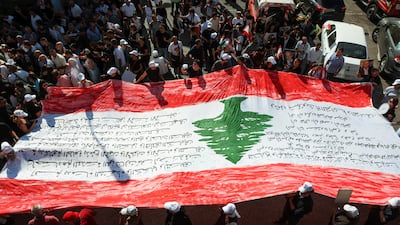
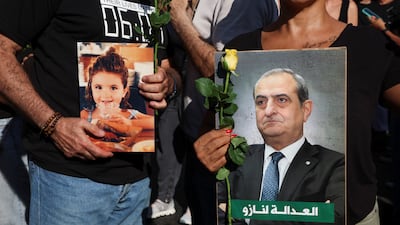
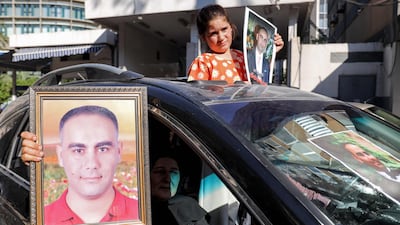
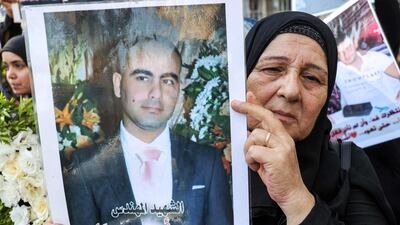
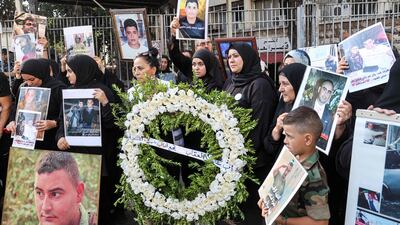
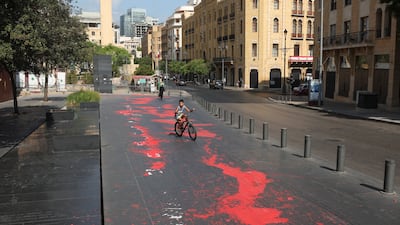
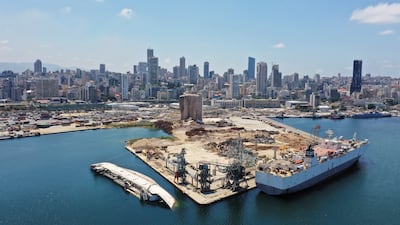
Mr Naggear said at the time that the compensation ruling was important because it set a “strong precedent” for other lawsuits.
On Thursday, hundreds of human rights groups, survivors and families of the victims urged the UN Human Rights Council to establish a fact-finding mission into the explosion.
This year, 38 countries issued a joint statement, delivered by Australia at the Human Rights Council in Geneva, which highlighted their concern that the investigation had not been concluded and had been “hampered by systemic obstruction, interference and intimidation”.
The joint letter noted that “the Lebanese authorities have failed to take any steps to ensure that the domestic investigation can move forward or to adopt a law guaranteeing the independence of the judiciary in line with international standards”.
On Friday, the French Foreign Ministry said it wanted the Lebanese justice system to be able to resume its investigation “in complete transparency, protected from any political interference”.

